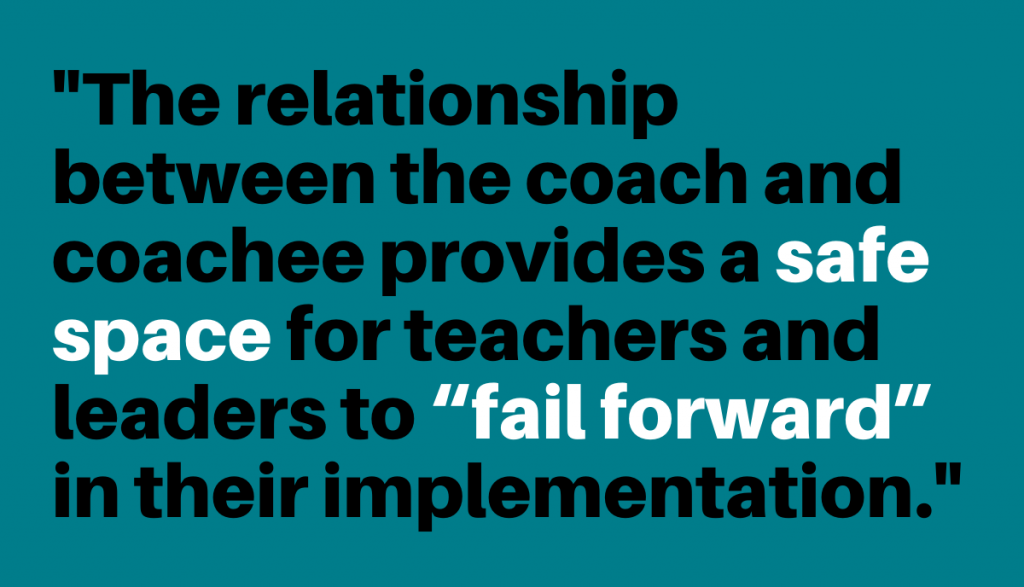When thinking about coaching, many people automatically think of the great sports coaches- Phil Jackson, Vince Lombardi, and Pat Summit- to name a few. But when it comes to education, coaching is still in the early phases of implementation. According to The Effective Schools Framework, educational coaching is one of the actions that effective schools do on a daily basis to support powerful teaching and learning.
More and more, we see coaching being implemented across schools across the country. Several indicators point to the importance of educational coaching. Let’s take a look at some of those.
1. Coaching Allows for Implementation of Skills
Coaching allows leaders to implement skills learned during professional development. Jim Knight of the Kansas Coaching Project says, “Effective coaching makes it easier for teachers to learn and implement new ideas. Indeed, without follow-up such as coaching, most professional learning will have little effect.”
Create lasting change on your campus and improve student outcomes through Texas Instructional Leadership!
Coaches are able to form professional partnerships with teachers and leaders which supports the implementation of the skills learned. In many instances, implementation of these skills is the most difficult, yet the most important part of new learning.
2. It Lowers Attrition Rates
According to the Texas Academic Performance Reports (TAPR), the average teacher turnover rate in the last 4 years in the state of Texas is 16.5%. The turnover rate for administrators is much higher.

The relationship between the coach and coachee provides a safe space for teachers and leaders to “fail forward” in their implementation. This allows for an opportunity to learn from your mistakes instead of feeling punished for making mistakes. Learning in this matter allows for a shift in perspective when it comes to thinking outside of the box and implementing new strategies.
3. Educational Coaching Builds Sustainability
Since coaching isn’t always something that occurs throughout someone’s entire career, it’s important that the skills learned are sustained even when the coach isn’t around.
This sustainability of skills greatly impacts the growth of the teacher or the leader. Instead of approaching problems on an individual basis, coaching promotes a sustainable, broad-level plan of action which allows for a greater far reaching impact.
4. It Establishes Connections
Being a new leader can be lonely at times. Having a coach establishes that connection to someone whom you can fully trust and respect.

Nurturing healthy working relationships improves morale and allows for a greater level of retention as mentioned above. When educators feel connected to their workplace, they have better efficiency in their work.
5. Coaching Improves Student Outcomes
Education is all about improving student outcomes. When teachers and leaders are effectively coached, student outcomes inevitably improve. According to John Hattie, the author of Visible Learning for Teachers, research has shown that instructional coaching and using data analysis of student learning to inform instruction effectively impacts student outcomes.
Ultimately, educational coaching has a positive impact on educators and student learning. To learn about one of ESC Region 13’s instructional coaching opportunities, Texas Instructional Leadership, contact us today!
Get started with Texas Instructional Leadership!
Melinda Marquez is the Director of Accountability, Assessment, and Leadership Systems here at ESC Region 13.






Add comment